International law may give you a moral vocabulary to talk about what’s happening in Ukraine, but given the impossibility of criminal trials you need to do something else with that information.
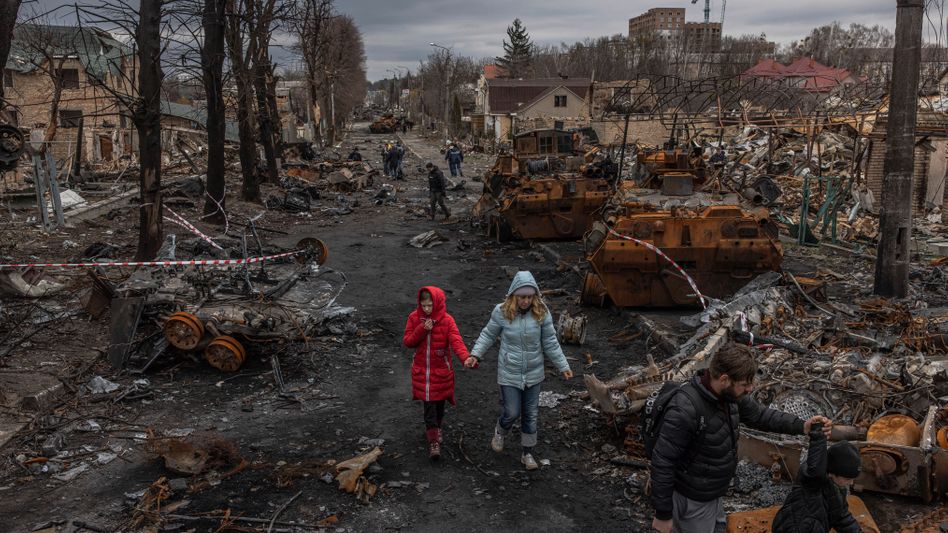
ABOVE: Vladyslava Liubarets, a Bucha resident, walks with her family past destroyed Russian military machinery, to meet her sister whom she did not see since the beginning of the Russian invasion. Hundreds of tortured and killed civilians have been found in Bucha and other parts of the Kyiv region after the Russian army retreated from those areas.
7 April 2022 (Berlin, Germany) – Earlier this week I posted my initial thoughts on the emerging new horrors from Ukraine. As the Russian army retreated from the areas around the Ukrainian capital of Kyiv, a series of horrific atrocities were being discovered, especially in Bucha. Bodies littering the ground, often with their hands tied behind their backs. Mutilated children are among them. And this is probably just the tip of the iceberg – more bodies will be found, and Russia still controls plenty of Ukrainian territory in the south and east.
There was more, of course. Russia denied all of it but satellite images show bodies in Bucha for weeks, rebutting Moscow claim that dead bodies appeared there after Russian forces retreated. Maxar Technologies made a comparison of two photographs taken on 19 March and 2 April 2 in Bucha:
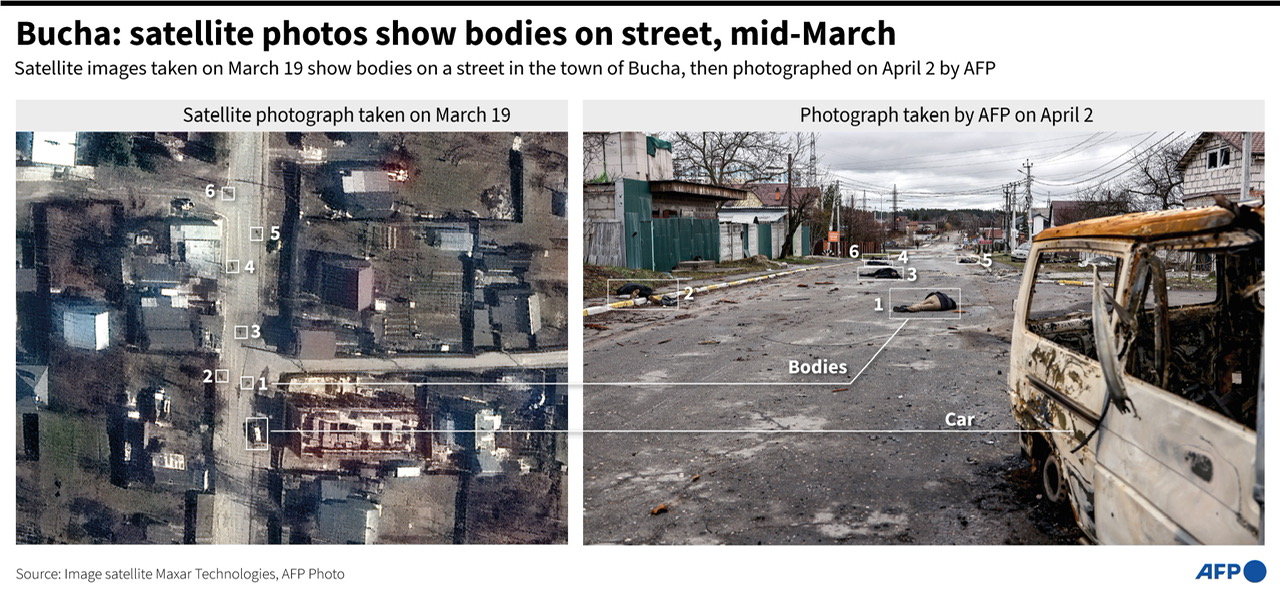
Maxar is a space technology company headquartered in the United States. It specializes in manufacturing communication, Earth observation, radar, and on-orbit servicing satellites, satellite products, and related services. I will have more about them later this weekend when I complete my war technology essay.
And there are the intercepted communications. German intelligence agencies have intercepted radio messages from Russian soldiers discussing the killings of civilians in Ukraine. Der Spiegel had a long report in today’s edition, and German intelligence officials presented their findings in a special session of parliament today. There is a whole series of intercepts, some of which show Russian soldiers describing how they question soldiers as well as civilians, and then proceed to shoot them. Here is just one from that series (translated by my German and Ukraine staff):
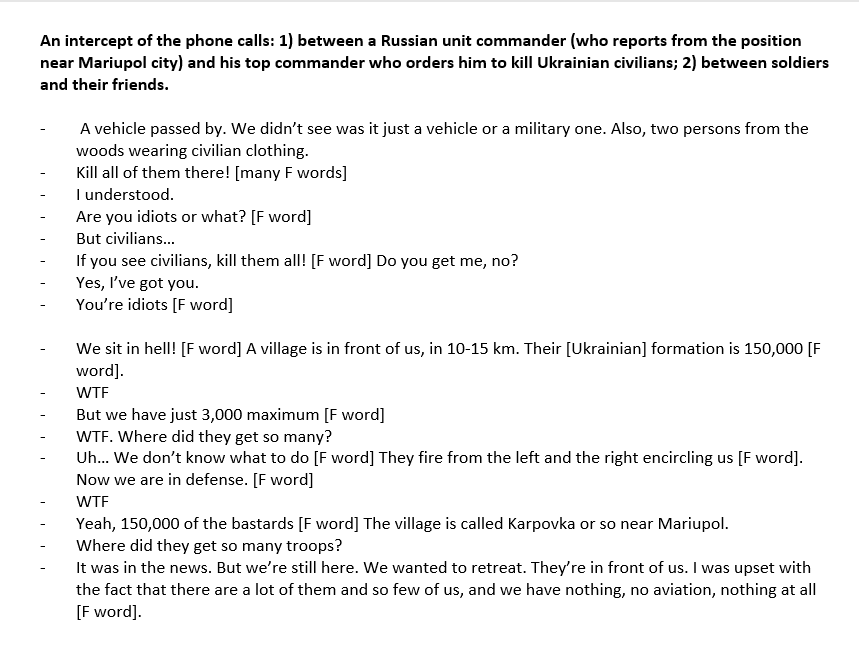 As I indicated, I’ll have a very detailed piece this weekend on “how to cover a war” and how war technology has changed the dynamics.
As I indicated, I’ll have a very detailed piece this weekend on “how to cover a war” and how war technology has changed the dynamics.
The calls for Putin to be held criminally accountable for the atrocities in Ukraine is a pipe dream
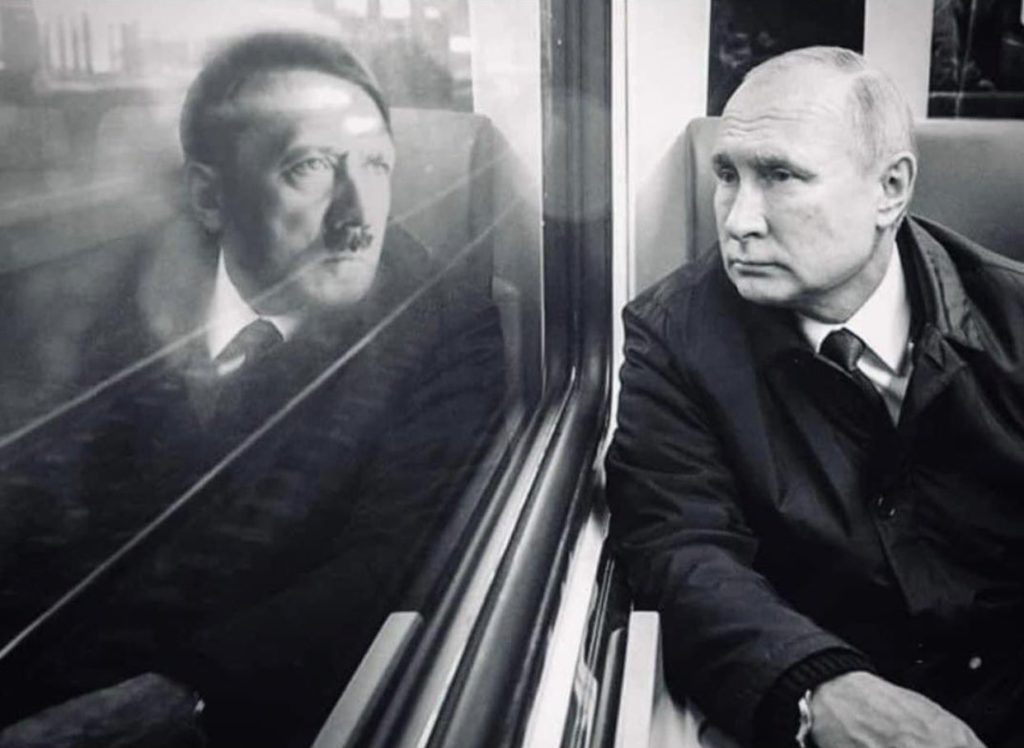
Being a member of the Foreign Press Association, and having been involved with the International Criminal Tribunal for the former Yugoslavia that dealt with war crimes that took place during the conflicts in the Balkans in the 1990s, some thoughts:
War crimes have been historically hard to investigate and often even more challenging to prosecute.
This is especially true when prosecutors seek to hold leaders or former leaders accountable. For clear cases of war crimes, often the main challenges are determining who is responsible, and what evidence exists that can establish culpability.
High-profile leaders often aren’t at the scene of alleged war crimes, making them harder to prosecute. In Bucha, for example, where reports have emerged of a mass grave and bodies of civilians strewn in the city’s streets, the main challenge for investigators is determining who is responsible and how high up the chain of command the responsibility goes.
Even if prosecutors can show that high-level officials and/or Putin directed or were aware of orders or actions that may constitute war crimes, a trial at the ICC or a war crimes tribunal cannot be conducted unless the official is in custody.
So it gets complicated unless a war criminal is captured on the ground in Ukraine.
For its part, the Kremlin has rejected the reports of atrocities in Bucha, and previously called Biden’s “war criminal” remarks “unacceptable.”
Because Russia is not a member of the ICC, which is conducting an investigation into possible war crimes committed in Ukraine, there would be no expectation that Moscow would hand over Putin or any other official if they’re charged.
Many individuals who have gone to trial for war crimes, were either captured during the armed conflict or were handed over after they fell from power – an unlikely scenario for Putin.
Which is why the capture of Alexander Olegovich Koshel, one of the highest-ranking staff officers of Russia’s Army, is so important:
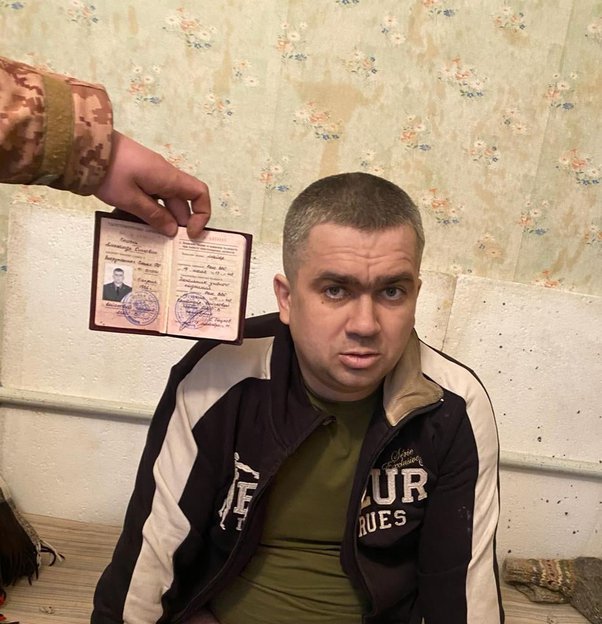
He is the head of the information and psychological counteraction group of the 47084th military unit of the Russian army. After his capture, the Russians deployed significant forces trying to free him. And the reason is Koshel had maintained a direct contact with Mikhail Zusko, commander of the overall Russian combined army, to whom he had made daily reports personally. Now his briefings (and he is talking) will provide information for Ukraine, German and U.S. counterintelligence agents.
But the bottom line remains: international law may give you a moral vocabulary to talk about what’s happening in Ukraine, but given the impossibility of criminal trials all you can do is trigger a much faster response from the international community with sanctions and boycotts – and provide the Ukrainians with any and all of the weapons they need – tanks, rocket launchers, air defense, planes, etc. – to expel the Russians from the rest of Ukraine as quickly as possible, so as to save as many Ukrainian lives as can be saved.